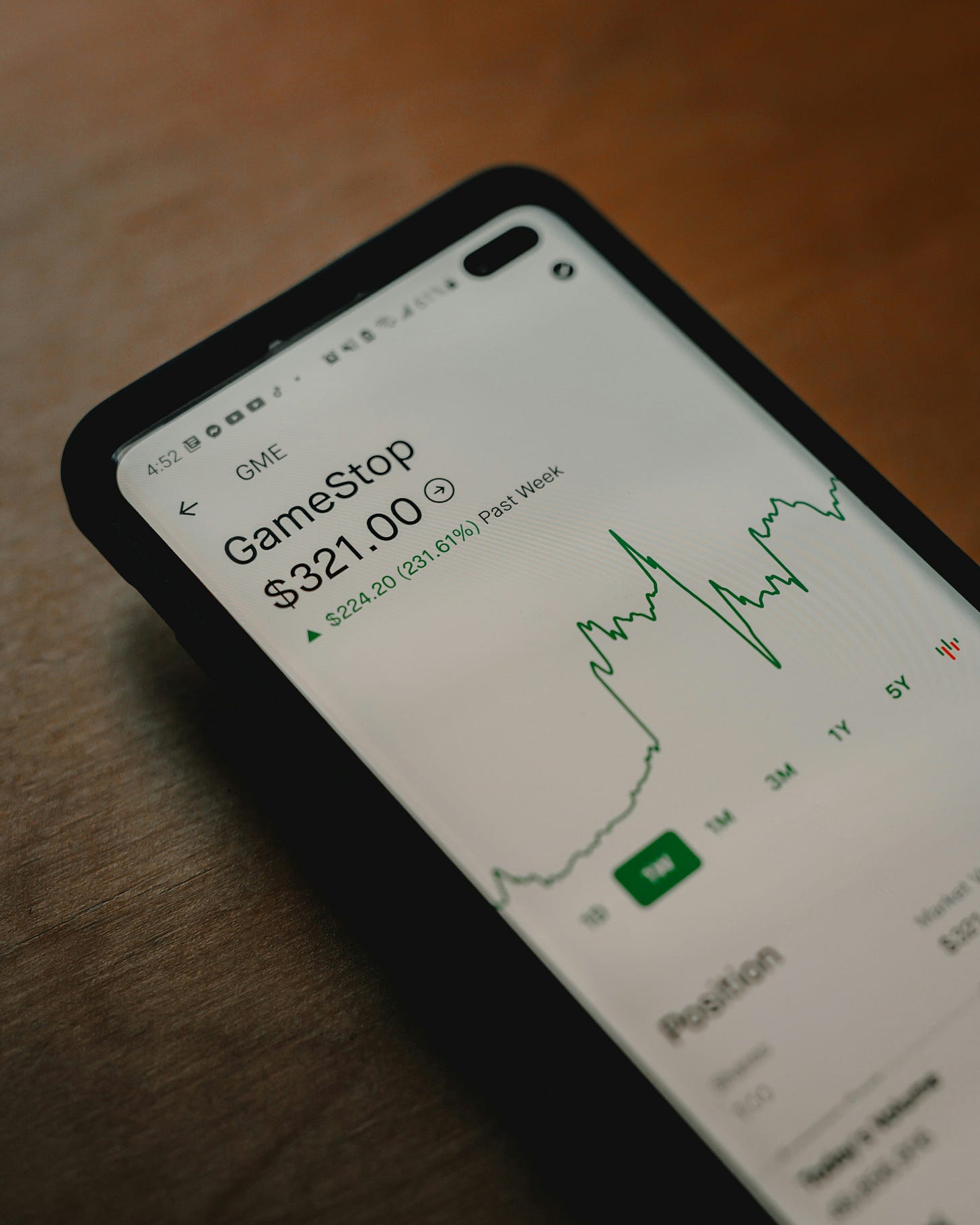The Humanism of Dumb Money
Dumb Money is a story of human beings, our collective experience, loyalty to each other, and what we can achieve when united.
I was flicking through some streaming service when I came across Dumb Money—Craig Gillespie’s 2023 biopic about how ordinary people on the Reddit forum r/WallStreetBets revolted against neoliberal capitalism by using its own tool, the stock market, to drive a hedge fund betting on economic downturn to financial ruin. As the summary said, “a subject that should rightly be drier than the Gobi Desert.” Not entirely convincing, but I’m interested in the economy and meme culture, and Paul Dano was great in the latest Batman movie. The film also clocks in at a respectable 104 minutes. I loved Oppenheimer, but sometimes you just want to watch a stupid comedy.
I was wrong. Dumb Money is not stupid. Neither are the people portrayed in it. So, basically, the movie tells the story of how Keith Gill, a real person, purchased around $53,000 in call options on GameStop stock in 2019, meaning he bet the value of the company would increase. He then started sharing details about his investment on the r/WallStreetBets subreddit, known for discussing high-risk transactions.
By January 2021, it had been revealed that the Melvin Capital hedge fund, a real firm, had shorted GameStop—meaning it bet on the stock’s value to go down. People on the subreddit decide to jointly push the value of the stock to make the fund pay, increasing GameStop’s value by 30x in one month. In the end, after some complications, Melvin Capital declares bankruptcy. Keith and other individuals manage to sell their holdings for significant gain; Keith even buys his brother a nice sports car—a 21st-century Robin Hood story.
Dumb Money’s core message is not, however, people sticking it to the man by taking a small piece of the pie for themselves or the absurdity of the story itself. It’s about human beings, our collective experience, loyalty to each other, and what we can achieve when united.
Several characters in the story buy stock, all with their personal struggles. Jenny is a newly divorced nurse with a mortgage raising two children. Harmony and her girlfriend, Riri, are both deep in student debt. Marcos, a GameStop employee stuck working overtime and taking crap from his weird boss. Keith Gill is the spiritual leader of the movement to keep buying and holding GameStop stock. He graduated from a middling university in the years following the 2008 Financial Crisis, going through life unsure about his future. The same can be said of his wife, Karoline.
Together, the characters’ plights paint a damning but accurate picture of America’s current political economy. There are a multitude of statistics to choose from. From 1970 to 2018, the median middle-class income increased by 49%, considerably less than the 64% increase for upper-income households. By comparison, the after-tax income of the wealthiest 1% increased by almost 230% between 1979 and 2005. Real wages have also stagnated. The median American male worker earned more in 1973 than in 2014, according to Brookings. And so on.
Inequality is not only a US phenomenon. All over the world, the rich are getting richer at the expense of the middle and working classes, an issue made worse by the pandemic.
Of course, Lohmann’s thesis still holds—it is infinitely more difficult for ordinary people to organise and learn about the intricacies of economic matters compared to interest groups funded by the wealthy. By extension, individuals may make decisions that are not in their interest. For example, it has been shown that average citizens primarily shape their opinions on redistribution policy based on how their own tax burden is impacted, not considering that tax cuts heavily favour the wealthy and may increase inequality. From this perspective, it is easy to dismiss people as dumb or selfish, not knowing what’s best for themselves.
So, why did the people of r/WallStreetBets refuse to sell for so long, even after they made 5x, 10x, 100x profit? Why not act on their impulses and take the easy cash, especially since it was mostly strangers that would be affected?
Because individuals from across America and elsewhere came together and realised they had much more in common with each other than not. In a society such as ours, where organised labour has been subdued, where impoverished governments hang people out to dry, where one is told individuals voting for a different party are fools, people are longing to express their disillusion and remind those at the top how powerful a large group of strangers can be. That is more important than money because money cannot buy true emancipation. And, deep down, people know it.
// Adrian






Wow, interesting to read. I wonder what would Marx think about this example- such a 21st century thing to happen